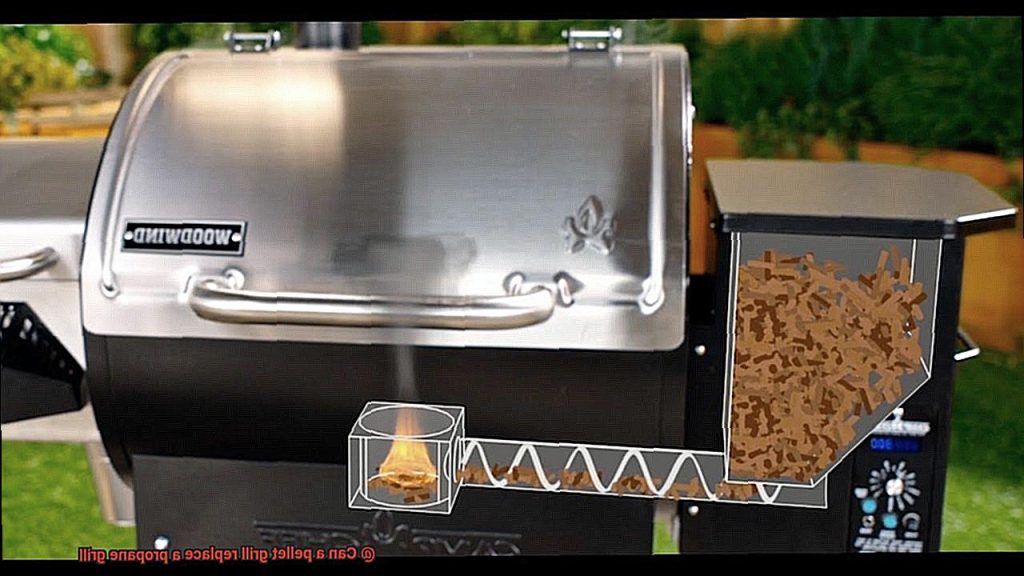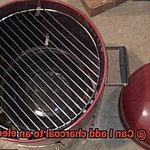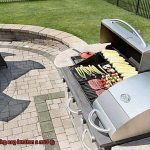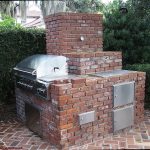Are you tired of the lackluster performance of your propane grill? Do you crave a cooking experience that’s more reliable, efficient, and mouthwateringly delicious? If so, it’s time to consider making the switch to a pellet grill.
Pellet grills have been taking the culinary world by storm for their ability to deliver consistent heat and smoke flavor using wood pellets as fuel. But can they truly replace your beloved propane grill?
The answer isn’t cut and dried. There are several factors that come into play when deciding between a pellet grill and a propane grill. Propane grills are known for their speedy heating and high temperature capabilities, perfect for searing steaks or whipping up burgers in no time. However, if slow-cooked meats like brisket or pork shoulder are your jam, then a pellet grill is the way to go.
But wait, there’s more. Pellet grills also boast energy efficiency and eco-friendliness since they use renewable wood pellets instead of fossil fuels. And with the added bonus of being able to bake, roast, and even grill at high temperatures with a sear box or direct flame insert, pellet grills offer unparalleled versatility.
So can a pellet grill replace a propane grill? It all depends on your cooking needs and preferences. But if you want an experience that’s consistently flavorful, efficient, and versatile, then it might be time to say goodbye to your old propane pal and hello to a new pellet partner in crime.
Contents
What is a Pellet Grill?
These innovative cooking appliances use wood pellets as fuel to create a unique, smoky flavor in your food. Made from compressed sawdust, the pellets come in various flavors, including hickory, mesquite, and applewood. Pellet grills have gained immense popularity in recent years due to their convenience and versatility.
Pellet grills work by feeding the pellets into a hopper that then deposits them into a firepot. A heating element ignites the pellets, creating smoke and heat that slowly cooks your food to perfection. The temperature of the grill is controlled by an electronic controller that adjusts the flow of pellets into the firepot. This precise temperature control ensures that your food is cooked evenly and perfectly every time.
One of the best advantages of pellet grills is their ability to maintain a consistent temperature. Unlike traditional charcoal grills that require constant attention to keep the fire going, pellet grills can be set to a specific temperature and left alone for hours at a time. This makes them ideal for slow-cooking meats like brisket and ribs.
Another significant advantage of pellet grills is their versatility. They can be used for everything from smoking and roasting to grilling and baking. Many models come with additional features like searing grates and rotisserie attachments, allowing you to cook a wide variety of foods. In addition, they are perfect for outdoor cooking enthusiasts who want to experiment with different wood flavors for unique tastes.
However, it’s essential to note that pellet grills are more expensive than propane grills and require electricity to operate. This means they may not be suitable for camping trips or picnics where there is no access to electricity.
What is a Propane Grill?
A propane grill is an outdoor cooking appliance that uses propane gas as fuel to cook food. It’s made up of a metal frame, grill grates, and a propane tank that connects to the grill via a hose and regulator. Propane grills come in a variety of sizes and styles to fit your needs, from small portable models perfect for tailgating to large built-in units for your outdoor kitchen. They also come in different configurations, such as freestanding, tabletop, and post-mounted.
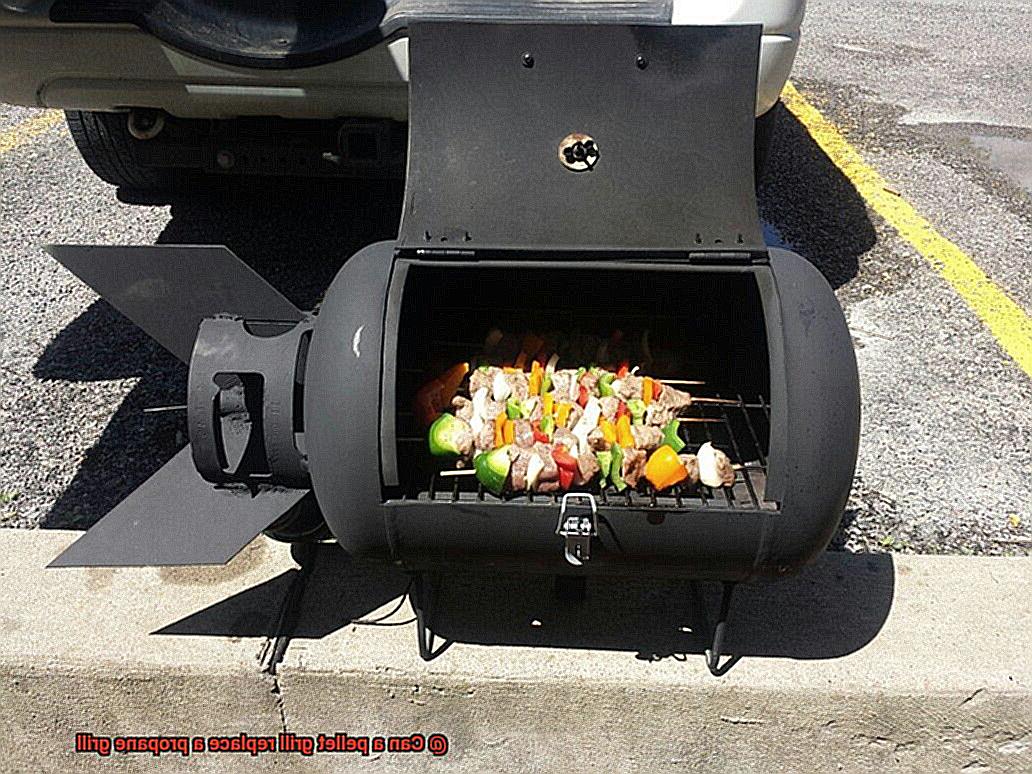
One of the best things about propane grills is their convenience. With just the push of a button, you can start cooking. Unlike charcoal grills, which require time-consuming setup and preparation, propane grills offer consistent heat output throughout the cooking process, making it easier to achieve perfectly cooked food every time. Plus, they are easy to clean up after use.
Another great advantage of propane grills is their versatility. Most models feature multiple burners that allow you to cook different types of food at various temperatures simultaneously. Whether you’re cooking up burgers for your family or preparing a feast for a large gathering, a propane grill has got you covered.
Propane grills are also relatively affordable compared to other types of outdoor cooking appliances. While high-end models can cost several thousand dollars, basic propane grills can be purchased for as little as a couple hundred dollars. And with proper maintenance, they can last for many years.
But don’t just take our word for it – here are some other reasons why propane grills are so popular:
- They offer precise temperature control, allowing you to cook your food to perfection.
- They heat up quickly, saving you time and energy.
- They are easy to use and require minimal cleanup.
- They are perfect for outdoor entertaining, whether it’s a small family BBQ or a big party.
Advantages of Pellet Grills
Then look no further than pellet grills. As an expert, I have researched and found some fantastic advantages of pellet grills over propane grills. Here are some reasons why you should switch to pellet grills:
Versatility is one of the primary advantages of pellet grills. These grills can be used for various cooking methods such as smoking, roasting, baking, and grilling. With a pellet grill, you have four cooking machines in one. It’s like having a versatile chef by your side.
Consistency in temperature is crucial while cooking. Pellet grills are designed to maintain a consistent temperature throughout the cooking process. This feature ensures that your food cooks evenly and eliminates the need for constant monitoring. You can have peace of mind while enjoying your meal.
The smoky flavor that wood pellets provide is something unique and delicious. Pellet grills use wood pellets as fuel, which adds a distinct smoky flavor to your food, making it more flavorful and juicy. Moreover, you can experiment with different types of wood pellets to achieve different flavors and find your favorite.
Ease of use is another advantage of pellet grills. They are easy to set up and operate, perfect for those who don’t want to spend hours figuring out how to use their grill. With an automatic ignition system, there’s no need to light charcoal or propane manually. Additionally, the hopper allows you to load pellets easily, and they will feed themselves into the firebox automatically.
Pellet grills are eco-friendly as they use renewable fuel sources like wood pellets. These pellets are made from compressed sawdust and other wood waste products, producing less pollution compared to propane or charcoal grills. You can enjoy your meal without worrying about harming the environment.
Disadvantages of Pellet Grills
Firstly, cost is a major factor to consider. Pellet grills tend to be more expensive than propane grills, both in terms of the initial purchase and the ongoing cost of pellets. This could be a deal-breaker if you’re on a tight budget.
Another disadvantage is their reliance on electricity. If you plan on using your grill for outdoor activities like camping or tailgating in an area without power, a pellet grill may not be practical. Additionally, the numerous moving parts of pellet grills mean they may require more maintenance than a simple propane grill.
Some people find that pellet grills don’t get as hot as propane grills, which can make searing meat or cooking at high temperatures challenging. And let’s not forget the subjective preference for taste – some folks simply prefer the flavor of food cooked on a propane grill over a pellet grill.
However, it’s important to remember that pellet grills also have their advantages. They’re incredibly versatile and can handle smoking, grilling, roasting, and even baking. Plus, they offer consistent temperature control and produce less smoke and ash than traditional charcoal grills.
Advantages of Propane Grills
As an expert on this popular grill option, I am thrilled to share with you the many advantages of propane grills.
- Instant Heat: The first and most significant advantage of propane grills is their ability to offer instant heat. Unlike charcoal grills, there’s no need to wait for coals to heat up or adjust temperature manually. With propane grills, simply turn on the gas, light it up, and start cooking in no time. This feature makes propane grills ideal for those who want to save time and get straight to cooking.
- Portability: Many propane grills come with wheels, making them easy to move around as needed. Additionally, since propane grills don’t require a nearby electrical outlet, they can be used in remote locations where electricity is not available. This makes them a perfect option for outdoor events or camping trips. With a propane grill, you can take your cooking skills anywhere.
- High Cooking Temperatures: Propane grills are known for their high cooking temperatures, which can reach up to 500-600 degrees Fahrenheit. This makes it easy to sear meats and vegetables quickly, resulting in a delicious and crispy exterior while keeping the interior moist and juicy. Plus, these high temperatures allow you to cook your food faster than other grill options. Who doesn’t love a perfectly cooked meal in record time?
- Low-Maintenance: Finally, propane grills are relatively low-maintenance compared to other types of grills. There’s no need to clean out ashes or charcoal debris after use, making them easy to use and clean up after. Plus, many models come with drip trays that collect grease and other cooking residue, making clean-up even easier. With a propane grill, you can spend more time enjoying your meal and less time cleaning up.
Disadvantages of Propane Grills
However, before you head to the store to buy one, it’s important to consider some of the disadvantages that come with this type of grill.
One significant drawback of propane grills is their need for a steady supply of propane gas to operate. This means that you’ll have to purchase and refill propane tanks regularly, which can be a hassle and an additional expense. Also, propane tanks are bulky and heavy, making them difficult to transport.
Another disadvantage of propane grills is their tendency to produce uneven heat distribution. This can result in some areas of the grill being hotter than others, leading to overcooked or undercooked food. This issue can be especially vexing when cooking for a large group of people.
In addition, propane grills are known for producing smoke and fumes that can be unpleasant and even harmful if inhaled in large quantities. This problem can be compounded if you’re cooking in an enclosed area or have respiratory issues.
Lastly, propane grills tend to have a shorter lifespan than other types of grills due to rust and corrosion. The burners may also wear out over time, meaning that you may need to replace your propane grill more frequently than other types of grills.
Comparing the Two Types of Grills
Grilling is a beloved activity that brings people together, but choosing the right grill can be overwhelming. Pellet grills and propane grills are two popular options that offer different advantages and disadvantages. In this article, we will explore the differences between the two in terms of flavor, temperature control, convenience, versatility, and cost.
Flavor:
Pellet grills use wood pellets as fuel, which gives food a distinct smoky flavor that many people love. This flavor profile is difficult to achieve with propane grills, which do not have the same ability to infuse food with smoky flavor.
Temperature Control:
Pellet grills have digital temperature controls that allow for precise temperature adjustments, making them ideal for low and slow dishes like brisket or pork shoulder. Propane grills typically have manual knob controls that may not be as accurate but can reach much higher temperatures of up to 700 degrees Fahrenheit, making them great for searing meat to achieve a crispy exterior.
Convenience:
Propane grills tend to be easier to use than pellet grills. Propane grills require minimal setup and do not need to be preheated for an extended period before use. Pellet grills, on the other hand, require more time and effort to set up and preheat. However, once they are set up, pellet grills require less maintenance during cooking than propane grills.
Versatility:
Pellet grills are more versatile than propane grills. In addition to traditional grilling, they can also be used for smoking, roasting, and even baking. Propane grills are primarily used for high-heat grilling and do not offer the same level of versatility as pellet grills. This means that pellet grills can replace multiple cooking appliances while propane grills are best suited for quick and efficient cooking.
Cost:
Propane grills tend to be less expensive than pellet grills initially. However, pellet grills offer better value in the long run due to their fuel efficiency and the ability to use cheaper wood pellets instead of expensive propane tanks. It is important to consider the long-term cost when deciding which type of grill to purchase.
EJqllBPDM18″ >
Conclusion
In conclusion, the question of whether a pellet grill can replace a propane grill is not a simple one. Each type of grill has its strengths and weaknesses, and your decision will depend on your specific cooking needs and preferences. Propane grills are known for their quick heating and high temperature capabilities, making them perfect for searing steaks or burgers. However, pellet grills offer consistent temperature control, versatility, and eco-friendliness thanks to their use of renewable wood pellets.
Pellet grills have become increasingly popular in recent years due to their ability to deliver consistent heat and smoke flavor using wood pellets as fuel. These grills are designed to maintain a steady temperature throughout the cooking process, making them ideal for slow-cooking meats like brisket or pork shoulder. Additionally, they’re incredibly versatile and can handle smoking, roasting, baking, and even grilling with additional features like searing grates and rotisserie attachments.
Propane grills offer instant heat, portability, high cooking temperatures, and low maintenance compared to other types of grills. However, they require a steady supply of propane gas to operate and tend to produce uneven heat distribution.
Ultimately, your decision between a pellet grill or propane grill depends on what you want out of your outdoor cooking experience. Consider factors such as flavor preference, temperature control precision, convenience features like portability or ease-of-use for cleaning/maintenance purposes; versatility when it comes to different cooking methods (smoking vs. grilling); cost-effectiveness over time (fuel costs); etc., before making your purchase.

